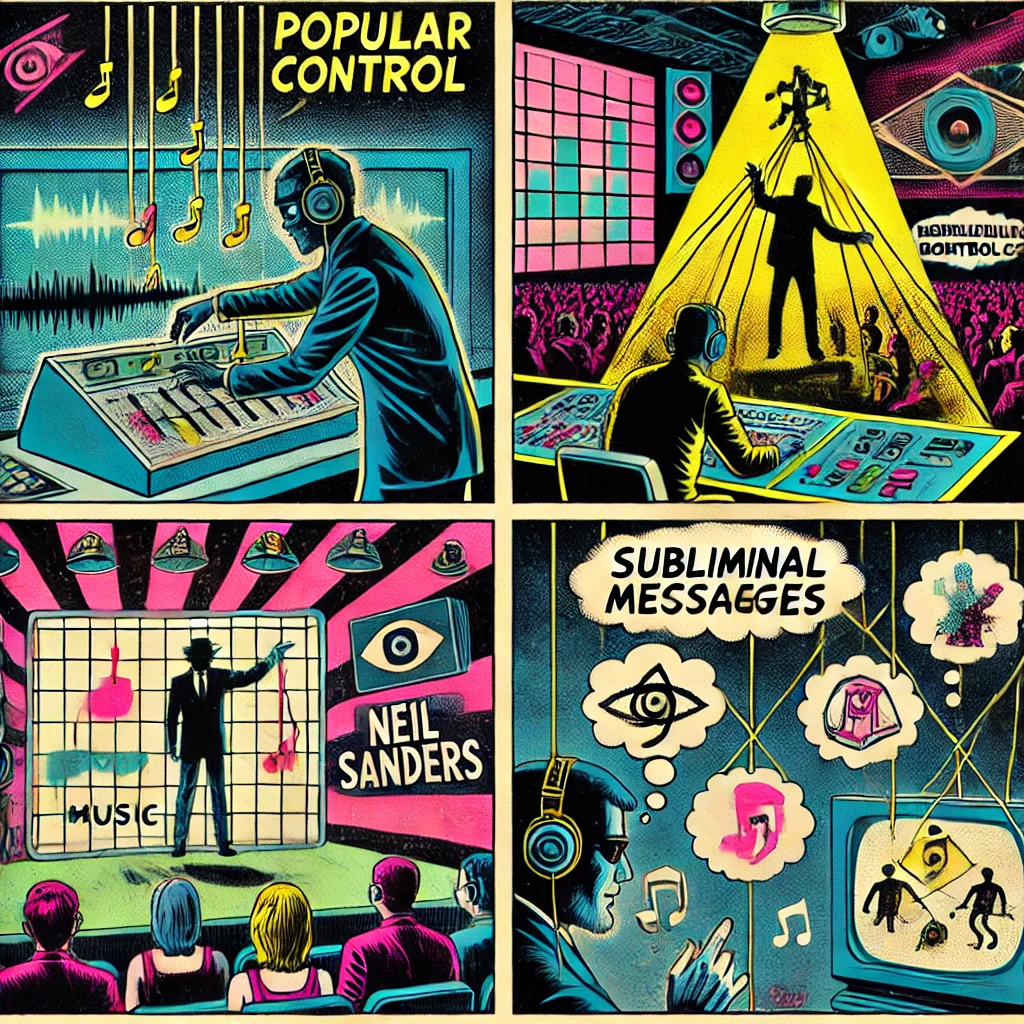Control of Popular Music Your Thoughts Are Not Your Own Neil Sanders
Published on Jun 1, 2013
http://www.richplanet.net/
http://www.neilsandersmindcontrol.com/
https://odysee.com/Neil-Sanders-talks-about-Control-of-Popular-Music:3
Neil Sanders is a British author and lecturer known for his research and commentary on topics related to mind control, propaganda, and mass media manipulation. In his book “Your Thoughts Are Not Your Own” and other works, Sanders explores the ways in which various institutions, including the entertainment industry, use psychological techniques to influence and control public opinion and behavior.
In the context of popular music, Sanders argues that the music industry, along with other sectors of the entertainment industry, plays a significant role in shaping cultural norms, attitudes, and values. He suggests that powerful individuals and organizations within the industry may use tactics such as subliminal messaging, repetition, and symbolism to manipulate the thoughts and emotions of audiences.
Sanders points to examples of alleged mind control and social engineering within the music industry, including the use of occult symbolism, subliminal messages, and covert agendas in music videos, lyrics, and performances. He also discusses the influence of record labels, media conglomerates, and marketing strategies on the creation and promotion of music that reinforces certain ideologies or agendas.
While Sanders’ theories have garnered attention and sparked debate, it’s important to approach them critically and consider alternative perspectives. While it’s true that the entertainment industry, including the music industry, can wield significant influence over public opinion and behavior, the extent to which this influence constitutes deliberate manipulation or mind control is a matter of interpretation and debate.
Many scholars and commentators argue that while the entertainment industry certainly has the power to shape cultural narratives and influence audience perceptions, the idea of a concerted effort to control minds through popular music may be overstated. Instead, they emphasize the complex interplay of commercial interests, artistic expression, social dynamics, and audience reception in shaping the cultural impact of music and other forms of media.
In conclusion, Neil Sanders’ exploration of the control of popular music reflects broader concerns about media manipulation and societal influence. While his perspectives may raise important questions about the power dynamics within the entertainment industry, they also warrant critical examination and consideration of alternative viewpoints.
